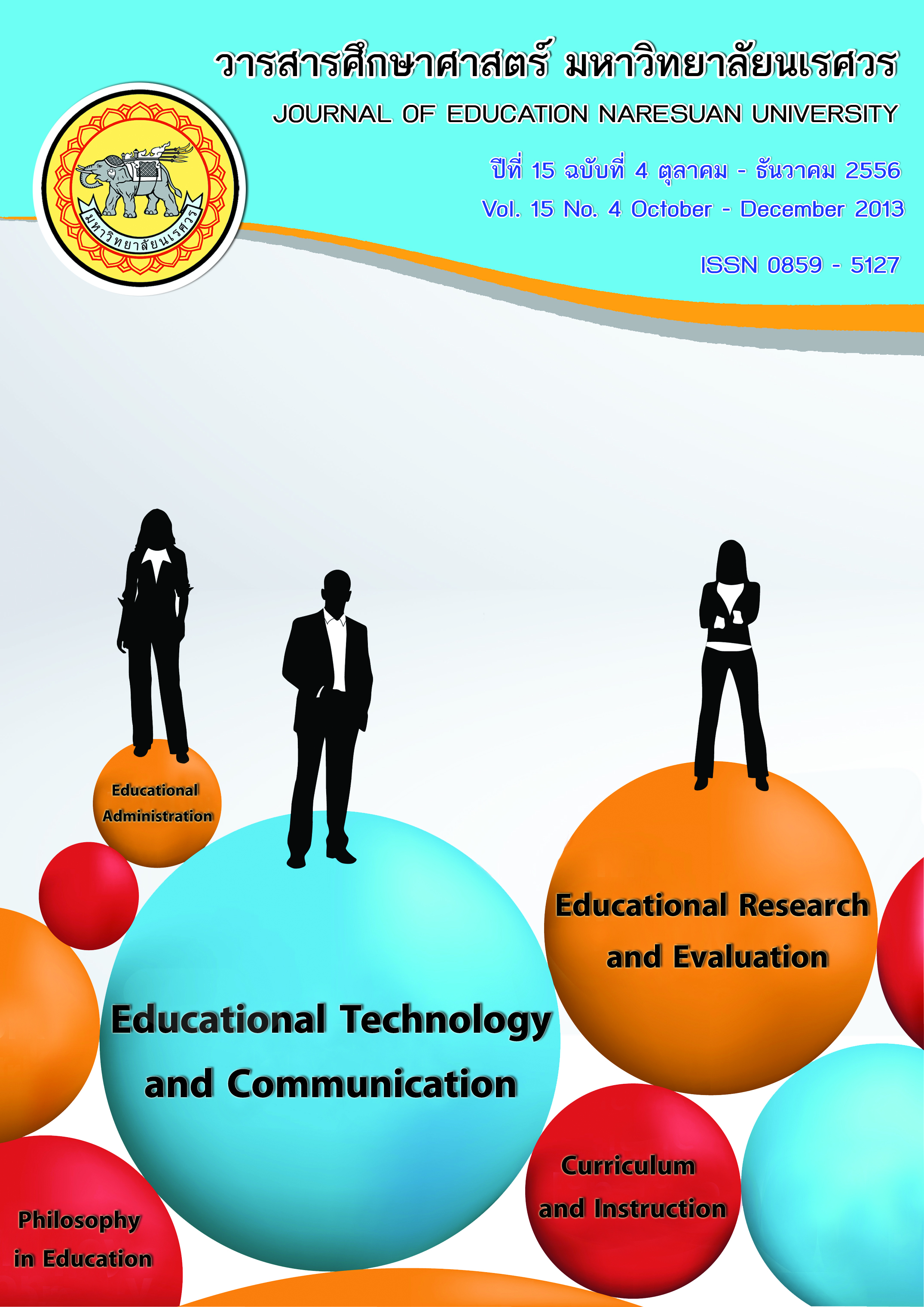การพัฒนารูปแบบการบริหารองค์การช่างเทคนิคในอนาคตแห่งประเทศไทย ของสถานศึกษา สังกัดสำนักงานคณะกรรมการการอาชีวศึกษา
Main Article Content
Abstract
บทคัดย่อ
การวิจัยครั้งนี้มีวัตถุประสงค์เพื่อพัฒนารูปแบบการการบริหารองค์การช่างเทคนิคในอนาคตแห่งประเทศไทยของสถานศึกษา สังกัดสำนักงานคณะกรรมการการอาชีวศึกษา ในการดำเนินการวิจัยแบ่งออกเป็น 3 ขั้นตอน ดังนี้ ขั้นตอนที่ 1 การศึกษาสภาพและแนวทางในการบริหารองค์การช่างเทคนิคในอนาคตแห่งประเทศไทยของสถานศึกษา สังกัดสำนักงานคณะกรรมการการอาชีวศึกษา โดยการสังเคราะห์เอกสารและงานวิจัยที่เกี่ยวข้อง และศึกษาสภาพและแนวทางการบริหารบริหารองค์การช่างเทคนิคในอนาคตแห่งประเทศไทยของสถานศึกษาที่มีวิธีปฏิบัติที่ดี จำนวน 3 แห่ง รวมทั้งการสัมภาษณ์ผู้ทรงคุณวุฒิจำนวน 6 คน วิเคราะห์ข้อมูลใช้การวิเคราะห์เนื้อหา ขั้นตอนที่ 2 การสร้างรูปแบบการบริหารองค์การช่างเทคนิคในอนาคตแห่งประเทศไทยของสถานศึกษา สังกัดสำนักงานคณะกรรมการการอาชีวศึกษา โดยนำข้อมูลจากขั้นตอนที่ 1 มายกร่างรูปแบบการบริหารองค์การช่างเทคนิคในอนาคตแห่งประเทศไทยของสถานศึกษาสังกัดสำนักงานคณะกรรมการการอาชีวศึกษาและตรวจสอบความเหมาะสมของรูปแบบ ด้วยการสนทนากลุ่ม ผู้ทรงคุณวุฒิจำนวน 9 คน ขั้นตอนที่ 3 การประเมินความเป็นไปได้และความมีประโยชน์ของรูปแบบการบริหารองค์การช่างเทคนิคในอนาคตแห่งประเทศไทยของสถานศึกษาสังกัดสำนักงานคณะกรรมการการอาชีวศึกษา กลุ่มตัวอย่างเป็นผู้บริหารสถานศึกษา จำนวน 242 คน วิเคราะห์ข้อมูลโดยการหาค่าเฉลี่ย และส่วนเบี่ยงเบนมาตรฐาน
ผลการวิจัย พบว่า รูปแบบการบริหารองค์การช่างเทคนิคในอนาคตแห่งประเทศไทยของสถานศึกษา สังกัดสำนักงานคณะกรรมการการอาชีวศึกษาที่สร้างขึ้นประกอบด้วย 3 องค์ประกอบ ได้แก่ 1) องค์คณะบุคคลที่เข้ามามีส่วนร่วมในการบริหารองค์การช่างเทคนิคในอนาคตแห่งประเทศไทย 2) ขอบข่ายงานองค์การช่างเทคนิคในอนาคตแห่งประเทศไทย 3) กระบวนการบริหารองค์การช่างเทคนิคในอนาคตแห่งประเทศไทย โดยผู้ทรงคุณวุฒิมีความเห็นว่ารูปแบบการบริหารองค์การช่างเทคนิคในอนาคตแห่งประเทศไทยมีความเหมาะสม และผู้บริหารสถานศึกษามีความเห็นว่าการนำรูปแบบการบริหารองค์การช่างเทคนิคในอนาคตแห่งประเทศไทยไปใช้มีความเป็นไปได้และมีประโยชน์อยู่ในระดับมาก
คำสำคัญ: รูปแบบการบริหาร/ องค์การช่างเทคนิคในอนาคตแห่งประเทศไทย
Abstract
This research aimed at developing an administrative model for future organization of Thai Technicians in educational institutes under the Office of Vocational Commission. The research procedure followed three phases. Phase 1 : studying the state and ways of the administration of the future organization of Thai Technicians in vocational institutes through related research and documents along with 6 purposively selected vocational institutions with best practices. In-depth interviews of 6 experts in vocational education were also employed. Data analysis was made through content analysis. Phase 2 : drafting the tentative model based on the research results from phase 1. The model was validated through group discussion of 9 experts in vocational education. Phase 3 : evaluating the drafted model for its feasibility and practicality by survey research, using the sample of 350 administrators of vocational institutes. Statistics employed for data analysis were mean and standard deviation,
The research found that the administrative model for future organization of Thai Technicians in vocational institutes under the office of Vocational Commission consists of 3 components: 1. Governing body of personnel involved in the administration for future organization of Thai Technicians in vocational institutes, 2. Scope of tasks of future organization of Thai Technicians in vocational institutes and 3. Administrative process of future organization of Thai Technicians in vocational institutes. The constructed administrative model has been validated by the selected vocational education experts and evaluated by the involved vocational institutes administrators as appropriate and feasible.
Key words: Administrative Model/ The Students Future Technician’s Organization of Thailand
Article Details
The owner of the article does not copy or violate any of its copyright. If any copyright infringement occurs or prosecution, in any case, the Editorial Board is not involved in all the rights to the owner of the article to be performed.


